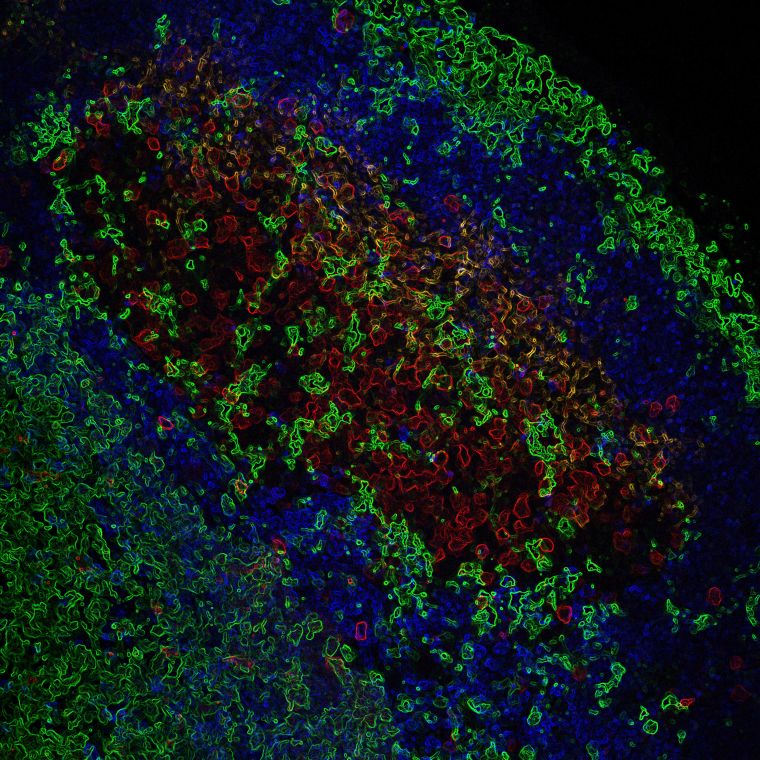Bannard Group: B Cell Immunology
- MRC TIDU
We study the cellular and molecular events responsible for shepherding the development of protective antibodies during infection and after immunisation. Our main focus is the germinal centre reaction.

Antibodies are proteins made by the immune system that bind to and neutralize foreign objects such receptors on the surfaces of viruses and bacteria; the induction of pathogen-specific antibody synthesis is probably the most important way by which vaccines provide protection. Antibodies start their lives as membrane receptors on circulating B cells. Each person has a repertoire of hundreds of millions of resting B cells, each endowed with a unique set of antibody-encoding genes that can be called upon when needed. However, in the constant arms race between the immune system and quickly evolving pathogens that are intent upon escaping recognition, even this is often not good enough. Antibodies need not only recognise foreign targets but they must usually bind them with high affinity and at particular sites or in certain orientations. Fortunately, the adaptive immune system has additional tricks to call upon; B cells can further modify and improve their antibodies by entering into unique structures known as germinal centres. Germinal centre B cells randomly mutagenise the genes encoding the binding regions of their antibodies in order to generate new bespoke proteins with improved characteristics. Each round of mutagenesis is followed by “selection” that involves B cells competing against one another based upon the specificities and affinities of their new antibody variants; essentially a form of natural selection. Together, these processes are known as antibody affinity maturation. Some germinal centre B cells are then chosen to differentiate and become long-lived antibody secreting plasma cells or memory cells that may provide protection against reinfection for years to come.
 |
 |
 |
Our lab is interested in the cellular and molecular events driving antibody affinity maturation in germinal centres and in understanding the cues that determine the differentiation of B cells towards their post-germinal centre effector states. While it is well recognised that clonal selection in the germinal centre is a competitive process, what exactly the limiting factors are that cells compete for, and how, is not known. Like in classical Darwinian evolution, it may be that competition between clones is not always for identical resources. The processes of rapid DNA mutagenesis and iterative selection are unique in biology and therefore they must demand that germinal centre B cells have evolved specialised cell biology, but the details of this are poorly understood. Our goal is to explore these issues and questions in ways not previously possible through the development of new approaches and genetic tools. By understanding the factors controlling cellular competition in the germinal centre we hope to learn how to better generate protective antibodies with vaccines, and by understanding the cues controlling differentiation we will gain insight into how to drive B cell clones carrying “good” antibodies to seed plasma and memory cell compartments.
DPhil and Postdoc opportunities
Prospective DPhil (PhD) students can apply for funded studentships through the following schemes;
https://www.ndm.ox.ac.uk/study/information-for-applicants
https://www.imm.ox.ac.uk/study-with-us/dphil
For examples of the types of research conducted by students in the Bannard lab, please see the following studies from recent/current DPhil students; Stewart et al. 2018 (Immunity), Long et al., 2022 (Science Immunology) and Sprumont et al. 2023 (Cell).
Prospective postdoctoral fellows should contact oliver.bannard@ndm.ox.ac.uk, attaching your CV and outlining your research interests.







